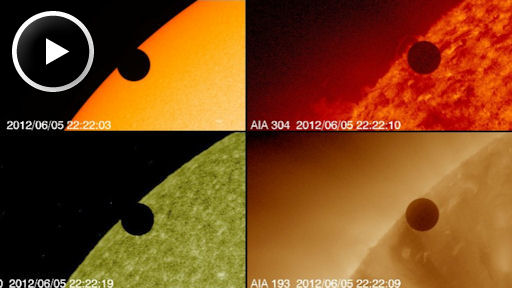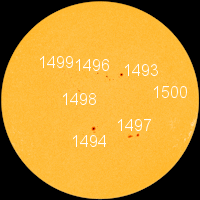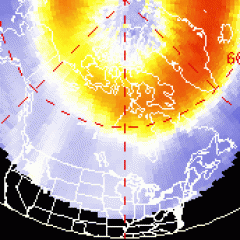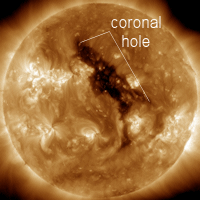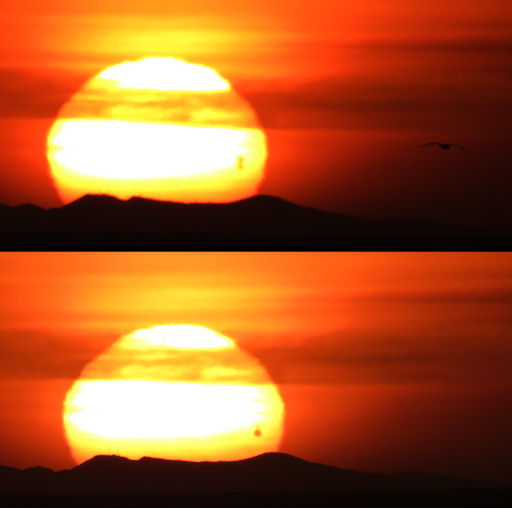TRANSIT OF VENUS: The 2012 Transit of Venus is finished, and it lived up to the hype. The inky-black silhouette of the second planet was wondrous to behold as it slowly glided across the solar disk on June 5th and 6th. Images from around the world may be found in the Realtime Transit of Venus Photo Gallery.
For the first time, a spacecraft has taken Hubble-quality photos of a Venus transit. NASA's Solar Dynamics Observatory recorded the event from geosyncronous orbit 36,000 km above Earth's surface. Click to view sample of the data SDO gathered:
SDO was able to track Venus across the full disk of the sun using a variety of white-light and extreme ultraviolet filters. The resulting movies are not only visually beautiful, but also full of scientific potential, especially for researchers who wish to study the strange dynamics of Venus's atmosphere.
The view from Earth wasn't bad either. "I knew I would not be able to take a better image of the transit than SDO, so I had to come up with something that SDO could not do, something that is seen only through Earth's atmosphere," says Mila Zinkova of San Francisco, California. "This something was, of course, a mirage."

![]()
Solar wind
speed: 644.7 km/sec
density: 0.6 protons/cm3
explanation | more data
Updated: Today at 1557 UT
![]()
X-ray Solar Flares
6-hr max: B8 1330 UT Jun06
24-hr: C1 0219 UT Jun06
explanation | more data
Updated: Today at: 1600 UT
![]()
![]()
![]()
Daily Sun: 06 Jun 12
![]()
![]()
Several of these sunspots are crackling with low-level C-flares. Stronger eruptions are unlikely today.
![]()
![]()
![]()
Sunspot number: 154
What is the sunspot number?
Updated 05 Jun 2012
Spotless Days
Current Stretch: 0 days
2012 total: 0 days (0%)
2011 total: 2 days (<1%)
2010 total: 51 days (14%)
2009 total: 260 days (71%)
Since 2004: 821 days
Typical Solar Min: 486 days
Updated 05 Jun 2012
The Radio Sun
10.7 cm flux: 139 sfu
explanation | more data
Updated 05 Jun 2012
![]()
![]()
![]()
Current Auroral Oval:
![]()
Switch to: Europe, USA, New Zealand, Antarctica
Credit: NOAA/POES
![]()
![]()
![]()
Planetary K-index
Now: Kp= 3 quiet
24-hr max: Kp= 4 unsettled
explanation | more data
![]()
Interplanetary Mag. Field
Btotal: 3.8 nT
Bz: 0.3 nT south
explanation | more data
Updated: Today at 1556 UT
![]()
![]()
![]()
Coronal Holes: 04 Jun 12
![]()
![]()
Earth is inside a high-speed stream of solar wind flowing from this coronal hole. Credit: SDO/AIA.
"The upper frame shows Venus distorted by the reafractive action of Earth's atmosphere," she explains. "In the lower frame Venus is back to her normal self. I took both pictures using a Canon Powershot SH40."
Realtime Transit of Venus Photo Gallery
[Submit your photos] [NASA videos: 2012 Transit of Venus, ISS Transit of Venus]
Transit of Venus Web Links:

